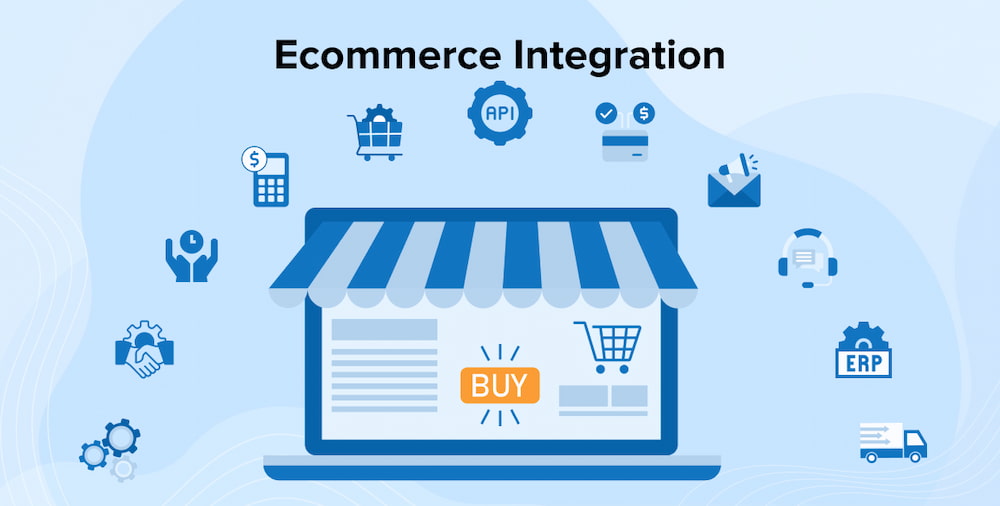Cloud-based enterprise resource planning (ERP) solutions promise a streamlined way to run operations—covering finance, inventory, sales, HR, and more—all from a single, unified platform. In Saudi Arabia, where businesses grapple with rapid growth, evolving regulations, and heightened competition, best cloud ERP software can be the differentiator that pushes a company beyond old-fashioned manual methods and scattered data.
“Local context really matters,” says Tamer Badr, owner of Singleclic. “Saudi Arabia’s market demands ERP solutions that fuse global standards with region-specific compliance, so you get the best of both worlds.”
This article explores top cloud ERP options in the Kingdom, the benefits they offer, and potential issues you should be aware of before diving in. Whether you’re a small startup or a large enterprise looking to modernize, you’ll find the insights needed to choose a platform that empowers your teams and scales with your ambitions.
Introduction
For many enterprises, the shift toward cloud ERP is about more than saving money on hardware—it’s about real-time collaboration, on-demand scalability, and simplified maintenance. Cloud-based systems let your employees access vital data from anywhere, so working remotely or coordinating multiple branches becomes much easier. In a fast-moving market like Saudi Arabia, that flexibility can keep your organization competitive.
Yet not all ERPs are the same. Some focus on manufacturing or distribution, others emphasize retail, while certain ones come loaded with specialized modules for finance or human resources. Understanding your needs—like multi-currency features, Arabic language support, or compliance with Saudi tax laws—helps you zero in on the solutions that truly fit.
People Are Always Asking
- “Is cloud ERP secure enough for Saudi-based businesses?”
- Answer: Reputable vendors employ encryption, role-based access, and compliance with local data regulations. Always confirm if they have data centers that align with Saudi legal requirements.
- “Will I lose data if the internet fails?”
- Answer: Cloud ERPs usually cache data, and any updates sync once the internet reconnects. Some solutions even allow limited offline functionality.
- “Can I integrate a cloud ERP with older software?”
- Answer: Most modern platforms provide APIs or connectors. The complexity depends on how outdated your systems are.
- “Does cloud ERP handle Arabic language and local tax laws?”
- Answer: Many solutions aimed at the Saudi market include Arabic language support plus compliance with VAT or e-invoicing rules.
- “What about after-sales support?”
- Answer: Vendors typically offer plans that include 24/7 help desks or on-site consults. Check how quickly they respond to requests.
These questions reflect the confusion business owners face about data security, downtime, and integration overhead.
Top Cloud ERP Solutions in Saudi Arabia
- SAP Business ByDesign
- Focus: Comprehensive suite covering finance, sales, supply chain, and project management.
- Benefit: Known for deep functionality, strong analytics, and scalability for mid to large enterprises.
- Drawback: High licensing fees and complex setup. Smaller businesses might find the cost burdensome.
- Oracle NetSuite
- Focus: Global approach with robust modules for advanced financials, multi-currency, and compliance.
- Benefit: Frequent updates, flexible customizations, and embedded analytics.
- Drawback: Implementation can be lengthy, requiring skilled consultants. The user interface also has a learning curve.
- Microsoft Dynamics 365
- Focus: Combines ERP with CRM, leveraging the familiarity of Microsoft’s ecosystem.
- Benefit: Strong if you already rely on Office 365; easy data flow with Outlook, Excel, etc.
- Drawback: Some local users find advanced customization or expansions pricey. Updates might be more frequent.
- Odoo
- Focus: Open-source platform offering many modules, from e-commerce to HR.
- Benefit: Cost-effective for SMEs, with a large community for add-ons.
- Drawback: Might need specialized help for heavy customizations, and some advanced features require separate paid apps.
- Zoho One
- Focus: Cloud suite that blends ERP-like features (finances, inventory) with CRM, marketing, and HR modules.
- Benefit: Offers straightforward user experience and a unified approach to data.
- Drawback: Deep-level accounting or manufacturing tasks might not be as robust as specialized ERP solutions.
Potential Drawbacks of Cloud ERPs
- Integration Snags:
- If your legacy software is heavily customized or lacks modern APIs, hooking it up to a new ERP may require advanced development.
- Subscription Costs:
- While you bypass big upfront hardware expenses, monthly or yearly fees can add up, especially if your user count surges.
- Data Localization:
- Some solutions host data outside the Kingdom, raising compliance or data sovereignty issues.
- Internet Dependency:
- A stable, high-speed connection is crucial for real-time data updates. Rural areas or places with inconsistent connectivity might struggle.
- Cultural Resistance:
- Staff used to older methods might be wary of cloud-based workflows, necessitating thorough training and communication.
Tamer Badr remarks, “Transitioning from on-premise or manual systems to the cloud can be a big step. But with the right planning and internal champions, businesses adapt smoothly.”
Reviews from Local Users
Zain, CFO at a Riyadh-based Manufacturing Firm
“We picked SAP Business ByDesign for our high-volume production lines. Implementation took about six months, but now everything from inventory to payroll flows seamlessly. Cost was steep, though.”
Fatima, Owner of a Mid-Sized Retail Chain
“Microsoft Dynamics 365 gave us better visibility across all branches. Our biggest hurdle was staff training, but once they grasped the dashboards, results were immediate.”
Ali, IT Manager at a Start-Up
“We went with Zoho One for cost reasons. For basic finance and project tracking, it works well. If we scale big, we might switch to a heavier solution, but for now, it’s more than enough.”
Why Cloud ERP Is Key in Saudi Arabia
- Regulatory Alignment
- Saudi Arabian authorities emphasize e-invoicing and digital record-keeping. Modern ERPs typically incorporate these compliance features.
- Localized Support
- Vendors tailor solutions with Arabic interfaces, enabling seamless adoption among employees more comfortable in Arabic.
- Market Growth
- As businesses expand regionally, a cloud-based approach ensures new locations can come online swiftly, with minimal local IT setup.
- Remote Work Possibilities
- Post-pandemic, many organizations continue hybrid or remote models. Real-time, cloud-based data fosters collaboration from anywhere.
- Scalability
- If you’re a small family shop turning into a national retailer, your ERP can scale usage for more staff, new modules, or additional geographies.
Frequently Asked Questions
- Do these ERPs support Arabic for all modules?
- Many solutions offer partial or full Arabic translation. Always verify the module’s depth of localization.
- What about VAT compliance for Saudi Arabia?
- Most global ERP providers incorporate local tax settings. However, confirm that your plan includes or can adapt to Saudi VAT rates.
- Is data stored locally or abroad?
- Some vendors offer local data centers in the Middle East. Others rely on global infrastructure. Check if data localization is a concern.
- How do I handle staff training?
- A phased rollout plus vendor-supplied tutorials or onsite training helps employees adapt.
- Can I do a pilot before committing fully?
- Some vendors let you test modules or run limited pilots. This approach reveals potential integration or user acceptance issues.
Conclusion
Best cloud ERP software in Saudi Arabia isn’t about picking the priciest or most famous brand—it’s about finding a solution that matches your unique processes, scales with your growth, and meets compliance requirements. Whether you favor SAP, Oracle NetSuite, Microsoft Dynamics, Odoo, or Zoho, each platform boasts a distinct blend of features and cost structures.
“Speak directly with local references,” advises Tamer Badr. “A solution that excels for a large manufacturing firm might be overkill for an SME aiming to unify basic finance and sales.”
Once you shortlist a few contenders, thoroughly test them. Evaluate everything—user-friendliness, integration capabilities, data security, and vendor support. Don’t forget to factor in potential drawbacks like subscription fees or staff training demands. Ultimately, aligning a robust ERP with your business strategy sets you on course for streamlined operations and long-term success in the vibrant Saudi marketplace.










